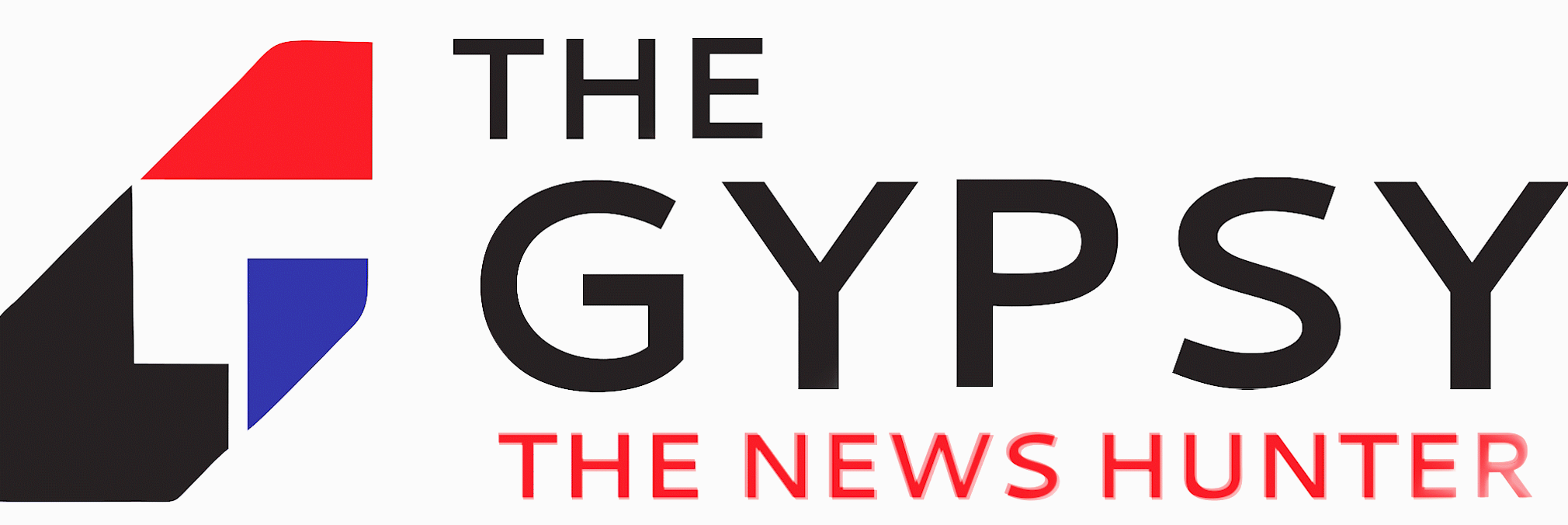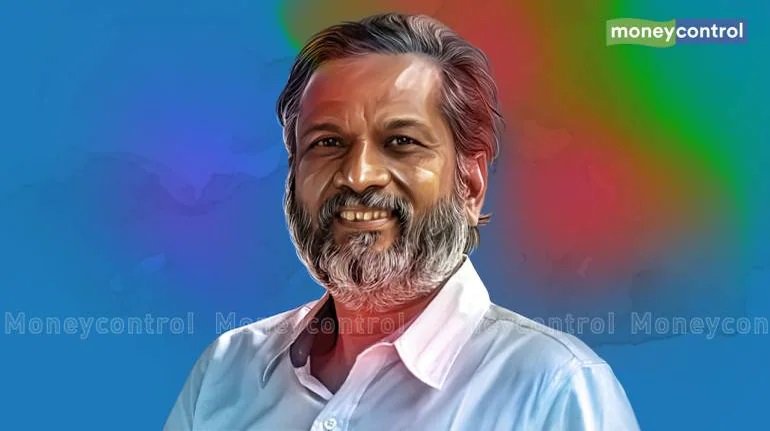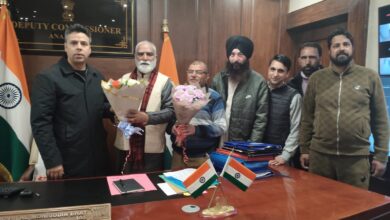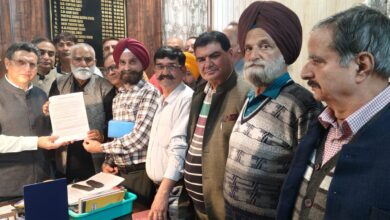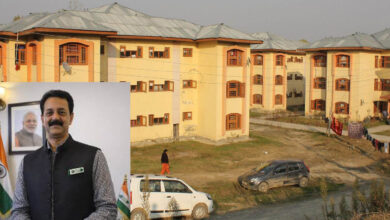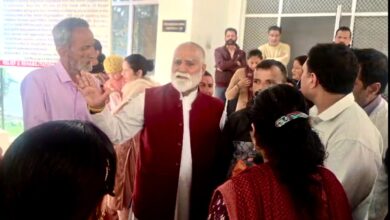Governments have accountability, platforms have none: Sridhar Vembu on India vs Big Tech
Sridhar Vembu, the billionaire founder of Zoho asserted that social media platforms must follow the laws of the land and stop dictating terms.
CHANDRA R SRIKANTH
New Delhi, May 28, 2021: Even as the Indian Government and Big Tech continue to trade blows on the new IT (information technology) rules that came into effect this week, Sridhar Vembu, the billionaire founder of Zoho asserted that social media platforms must follow the laws of the land and stop dictating terms.
Three years ago, Vembu moved from Silicon Valley to a village in Tenkasi district in Tamil Nadu— from where he runs the software product firm—with an aim to empower rural communities. Zoho, valued at over a billion dollars, is completely bootstrapped. Vembu, who was awarded a Padma Shri in January, is a strong advocate of the government’s Atmanirbhar policy, averring that the country must develop its own tech know-how and reduce the dependence on foreign enterprises.
Here are the edited excerpts:
While the Government is firm that they have to comply with the new social media rules, platforms, and users feel this will infringe on their privacy and freedom of expression. Is there a middle ground here? Will courts decide the way forward? WhatsApp for instance has already gone to court against the Government.
I want to separate the two issues between the social media platforms versus messaging apps like WhatsApp. Let’s address the social media platforms- these platforms are already doing the censorship. As an example, I want to point out the origin of the COVID issue. US social media platforms, including Twitter, censored all the discussions that this virus could have come from a lab, something that is being considered now. So for them to turn around and accuse the Indian government of something is just hypocritical. If they want to operate in our country, they have to operate according to our laws. They don’t get to make laws here.
But shouldn’t these rules be consistent? It is not about Indian companies, foreign companies, these rules should apply to everyone, they should be backed by law. How do you make that consistent in a way that it doesn’t appear as if this is happening according to the whims and fancies of the government?
That’s a fair point. But the broader issue is that platforms like Facebook and Twitter or even YouTube, are getting themselves the power to determine what is acceptable speech. And they are doing this across the world on a variety of topics. They will say algorithms, but it’s not really algorithms, it’s people who determine what gets seen or not seen. I come from a perspective where sovereignty matters, India has to determine what is appropriate for our standards, our values, all of that. And we don’t want a Facebook or Twitter dictating terms to us. And our history as a country was dominated by a company, the East India company should give us pause on all these matters. India has a legally elected government. Even if we disagree with it, there are elections courts all of these mechanisms There is no need for a Facebook to determine what is acceptable discourse in India.
But isn’t Twitter labelling posts, flagging some posts part of an important fight against fake news and manipulated content?
They called the theory that Covid could have come from a lab in China a conspiracy last year.
And today, all of the mainstream outlets in the US are covering this without even accepting that they got this wrong last year. So this is why it’s important that the platform does not have the power to determine what is truth. Atleast the elected governments have some accountability, democratic accountability, the platforms have none. They then hide behind their algorithms. And this is not just an India issue, Germany or France or Australia, all of these countries have the same issue with these platforms. Even the USA has these issues. If an executive of Twitter will testify in front of US Congress, should they not be actually asked to testify in front of the Indian Parliament?
What is your reading of the way section 79 of the IT Act has been applied, because these platforms will now lose the immunity they have and will be liable for third-party content?
Are they a neutral carrier of information like a fiber optic provider? Or are they like a publishing house? And the distinction has been blurred now because they used to be more like a fiber optic provider but now they’ve actively started to control the information. So then why should they have immunity? Our country may have a different decision on what is acceptable to us, there cannot be a global standard on this, because what is acceptable speech varies by jurisdiction. So that is why I think these are these issues are very much political. And politics is not a dirty word, this must be debated, this must be a legal mechanism, parliament has to pass laws. That’s where we are heading on this.
And what about concerns that actions against global platforms will harm India’s image at the international level, in the way it sees democratic freedoms, and that this might also impact investment at a later date?
Indians should stop acting like school kids looking for approval from school teachers. There is not some global school teacher that is approving our actions. We don’t need them. And, you know, the State Department is issuing reports on India, India should be issuing reports on the US too. Would anybody argue that India is less free than China? And investment was flooding into China. Investors go because there’s money to be made, not because they somehow know Twitter faces some trouble with the Indian government or something. So we should stop thinking about these issues.
But there is a lot of abuse, illegal content, fake news, and all kinds of things going around on social media. So who is going to bell the cat? Who is going to flag this at appropriate times?
That is why we have Parliament’s legislators to enact these laws. That’s why we have governments that’s why we elect governments, this is the appropriate role of government to regulate speech. We cannot have private sector entities regulating these because that is actually dangerous. If Trump had said the sun rises in the east, these platforms would have regulated that speech. That is where it was heading already. Whether or not you agree with their politics, they were making a political decision. You cannot just pretend I’m a technology provider, because they’re not neutral. They have not been neutral.
You said at the beginning that we need to separate the traceability issue concerning WhatsApp. What is you view on this because there is concern that this is not a proportionate demand and will end up compromising privacy.
This is actually an issue where you can have a legitimate arguments on both sides. You do want privacy, there is an expectation of privacy for common citizen to have. At the same time, a government could have a legitimate concern about issues like terrorism. For example, Apple had a run in with the FBI. So we have to understand that when, for example, when a major terrorist attack happens, the public demands that why isn’t the government more accountable? Why isn’t the government more practical? It happens. So that is where I think these questions are not easy because technology goes one way and the regulatory authorities and public safety authorities have a different need. These have to be debated and democratically elected Parliament’s and legislatures that is what is to be arrived at. This is not a pure technology decision. This has to be a technology and politics, intersection decision law, that is where it has to be made.
You said these issues have to end up in Parliament. Some say it may also end up in courts. Should there be an independent arbiter, that is free of political pressure/bias to regulate social media content?
I believe there is some kind of an independent mechanism that is somewhat like the courts, appointed by the government eventually but independent of day to day political pressures, that could be operating as an oversight, because that’s where we are heading clearly. And this could differ from jurisdiction to jurisdiction, country to country, this is not going to be the same around the world. They have operated in a kind of a wild west regime, where we will do whatever we want, nobody can ask questions to where the sociatel impact is too high. So society, as expressed through politics, and governments will get involved. And that’s where we are heading.
And how important is it for a country like India to have its own homegrown social media platforms? And you know, how can we really develop internet and social media giants? The Facebook of India’s Facebook, the Google of India’s Google, and the WhatsApp of India’s WhatsApp.
This is not just these technologies is not just search engine, it’s not just video streaming platforms, not just social media, I have more broadly believed that any crucial technology, take the 100- 200 top technologies, everything from advanced steel to drones, India must have the knowhow domestically, this just comes to the territory of having a very large population. And from both sides from employment side, our young people need something to do, we need jobs. And from the other side demand side, we actually have the capacity to build all these things now. And if we don’t have the critical know how we will end up in a situation like the East India Company all over again, we must not forget our history, this is very important. Foreign controlled platforms that are very dominant, eventually develop a life of their own, and they develop an agenda
But it is not as if these experiments haven’t happened. You have Koo. Your company Zoho launched Arattai. But, why is it that we haven’t been able to launch platforms that are able to scale, that have the same network effects as a Twitter or a WhatsApp?
It is simply being late, the market is well developed, mature and hundreds of millions of users are on these platforms. So naturally, any new product, anything to take off is a tougher challenge. But you run this for five years, 10 years, the results are slowly going to be different. I don’t think in 2030, we will be having the same conversation. Just like 10 years ago, we were asking, where are the Indian startups or are any Indian startups going to be world-class at all but today there are many Indian startups that are actually doing well on the global stage. In a similar way, I believe that in 10 years, the reality will be different because a new generation of software is coming, new generation of people are coming into the industry and the ability to scale on that is different.
